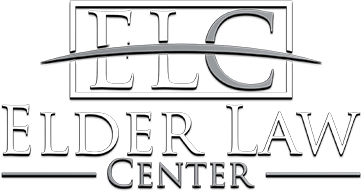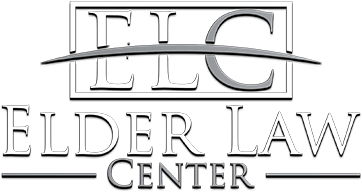
Probate
Riverside Probate Attorneys
Compassionate Probate Guidance in Riverside and the Surrounding Counties
When a person passes away, their property cannot simply be given to or collected by heirs. The court-supervised process known as “probate” settles a deceased person’s estate and facilitates the legal transfer of assets to beneficiaries. Unfortunately, probate tends to be a costly burden to families who are already grieving the deaths of their loved ones.
Since 1982, our team at Elder Law Center, P.C. has helped California families navigate what can be one of the most difficult times in their lives. We know the ins and outs of probate law and can help you take steps to expedite and simplify the process. Our Riverside probate lawyers are also experienced litigators who can capably handle any disputes that may arise, including will contests. We understand the gravity of what you are going through and will be there to provide empathetic support every step of the way.
Contact us online or call (951) 474-0708 to schedule a free initial consultation. Flexible payment options are available.
How Probate Works in California
Probate does not start on its own. Someone close to the deceased will need to ask the appropriate probate court to begin the process. Hopefully, the deceased person will have created an estate plan and named a personal representative in their will. This personal representative – also called the “executor” – should file a petition with the court. If no will can be found or the personal representative is not available, an immediate family member can contact the court and ask to be made the personal representative.
When a will exists, it must be reviewed by the court, which will decide its validity. Then, the court will formally appoint the personal representative – the person named in the will if the document is valid, or another person (usually a family member) if it is not.
The personal representative will oversee each stage of probate and take on numerous financial responsibilities. It is a big job, especially in the wake of a loved one’s passing, but you do not have to face it alone. Our Riverside probate attorneys can provide guidance to personal representatives throughout the process.
What You Need
In California, the personal representative will need to:
- Contact heirs, beneficiaries, and creditors. This gives heirs and beneficiaries a chance to contest the will and creditors an opportunity to file claims with the estate.
- Inventory and appraise estate property. All of the deceased’s assets must be located, collected, accounted for, and protected.
- Pay bills and settle claims. The personal representative has the authority to use estate funds to pay the deceased’s final expenses and settle other valid claims from creditors.
- Resolve conflicts. If an interested party contests the will, the dispute will likely need to be litigated. Litigation may also be necessary if there is a disagreement over a creditor claim.
- File taxes. The personal representative must file the deceased’s final tax return.
Once all matters have been settled and a full inventory has been presented to the court, the personal representative can ask to “close” the estate. Then – and only then – the personal representative can complete the final step of probate: distributing assets.
If a valid will exists, the personal representative will follow the document’s instructions when distributing assets. If no will exists, estate assets will go to the closest surviving relatives of the deceased.
As you can see, probate can be an extremely complex process. It is often slowed down by litigation-related delays and other problems. Fortunately, several expedited procedures may be able to help you skip part or all of probate.
Spousal Property Petitions in California
When someone passes away and leaves their property to their spouse, the surviving spouse may be able to avoid much of probate through a Spousal Property Petition. This request transfers the deceased’s property to the surviving spouse without first going through probate. This may be a good choice if there is no will and no other immediate heirs (such as children). Under California’s intestate succession rules, the deceased’s property would go to the surviving spouse anyway – the Spousal Property Petition simply asks to cut through the red tape.
These requests can also sometimes be made if a will does exist and leaves most or all assets to the surviving spouse. Again, the Spousal Property Petition moves to skip steps and save everyone time and money. Our team can evaluate your situation and advise whether submitting a Spousal Property Petition makes sense in your case.
Succession to Real Property for “Small Estates” in California
You may be able to skip the bulk of probate if your deceased loved one’s total estate – including both their real and personal property – is valued at $166,250 or less. By filing a “petition to determine succession to real property,” you ask a probate judge to forgo all of the usual steps and allow beneficiaries to claim assets. Keep in mind you cannot use this simplified probate procedure if the deceased only has personal property or if the value of all property exceeds $166,250 in current value.
Non-Probate Transfers in California
Many people take steps to avoid probate while they are alive. Estate planning offers several tools that allow your loved ones to receive assets outside the probate system once you are gone. Other types of assets are also generally exempt from probate. Our team at Elder Law Center, P.C. can help you reduce the impact of probate through the proactive use of trusts and other non-probate transfer opportunities.
Examples of non-probate transfers include:
- Assets placed in trusts
- Retirement fund beneficiary designations
- Life insurance policy beneficiary designations
- Bank account beneficiary designations
- Real property held in joint tenancy
Ancillary Probate Issues
Probate can become much more complicated when a deceased person owns real property in more than one state. Probate must start in the state where the person lived at the time of their death, but an additional probate case – called “ancillary probate” – must be opened in each state where the deceased owns real property. The deceased’s personal representative will generally need to hire an attorney licensed to practice in each individual state. Our Riverside probate lawyers are prepared to assist with California ancillary probate, and we can also work with out-of-state legal professionals when a California resident owns property in one or more other states.
If you need help with estate administration, do not hesitate to call (951) 474-0708 or contact us online.




